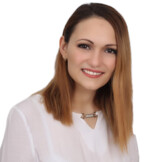Treatment of polycystic ovary syndrome: medication, surgery
There is no medicine to treat polycystic ovary syndrome directly.
Treatment consists of modifying and eliminating the symptoms.
The first thing to do in the treatment is a change in lifestyle, which is the most effective.
Changing and modifying eating habits, adding a healthy lifestyle, exercise and a weight loss of 5 - 10% can improve all symptoms and help regulate the menstrual cycle. So any diet where you lose weight will help you to improve your health condition.
Cholesterol levels will improve, insulin levels will be reduced and the risk of cardiovascular disease and diabetes will be reduced. Low-carbohydrate diets lower insulin levels and are also effective for weight loss.
The intake of fruits, vegetables and whole grains, with a low glycemic index help to regulate the menstrual cycle better than a weight loss diet alone.
Losing weight with diet and through exercise improves ovulation and insulin levels and you reduce your risk of diabetes and heart disease. Exercise and physical activity at least three days a week for 30 minutes at moderate intensity.
Acupuncture also has a positive effect on improving the condition with PCOS.
Pharmacological treatment depends on whether the woman has decided to get pregnant or not.
If a woman is not planning a pregnancy:
It is best to choose hormonal contraceptives (HC) or anti-androgens to modify the menstrual cycle and hyperandrogenemia, which has manifestations such as acne or baldness.
If there are only anovulatory cycles and no other symptoms of the disease, it is enough to use gestagens.
Insulin sensitizers - drugs that increase tissue sensitivity to insulin, given for insulin resistance.
Antidiabetic drugs such as metformin, which can also help with menstrual cycle adjustment, acne and weight loss.
Birth control pills and diabetes medications can help correct hormone imbalances and improve symptoms.
Aromatase inhibitors - letrozole - prevents the conversion of androgens into estrogens. For the treatment of acne is effective HC, antiandrogens, topical therapy.
Hirsutism - HC, antiandrogens, hair removal medications, cosmetic procedures such as laser removal of unwanted facial and body hair.
When planning pregnancy:
Fertility drugs are given to help conceive with PCOS. Antiestrogenic hormone promoting follicle growth, ovulation stimulation - Clomiphene. Often given with metformin as well.
If ovulation does not occur with Clomiphene therapy, gonadotropins are used in small doses to prevent the maturation of multiple eggs simultaneously and multiple offspring.
If drug treatment is ineffective, assisted reproduction is initiated.
Intrauterine insemination (IUI) - this method is performed on an outpatient basis. With hormonal induction of ovulation, sperm are introduced into the uterus during ovulation. The success rate is 10 - 15% per cycle.
In vitro fertilisation (IVF) - insemination outside the body. Fertilisation occurs outside the woman's body and is then inserted into the uterus.
In vitro oocyte maturation (IVM) – no medication is given during this treatment. The woman has an egg retrieved which is matured under laboratory conditions and then performed as IVF.
Surgery to improve fertility is also an option if non-pharmacological and pharmacological treatments are not effective.
Laparoscopic ovarian drilling - is currently considered a safe and effective alternative for the treatment of PCOS. Ovarian drilling is a laparoscopic procedure during which holes are created in the ovaries.
Surgical treatment - partial resection of the ovary (removal of one-third to one-half of the volume of the ovary). In 80%, the menstrual cycle is corrected and up to 50% of women can become pregnant.










